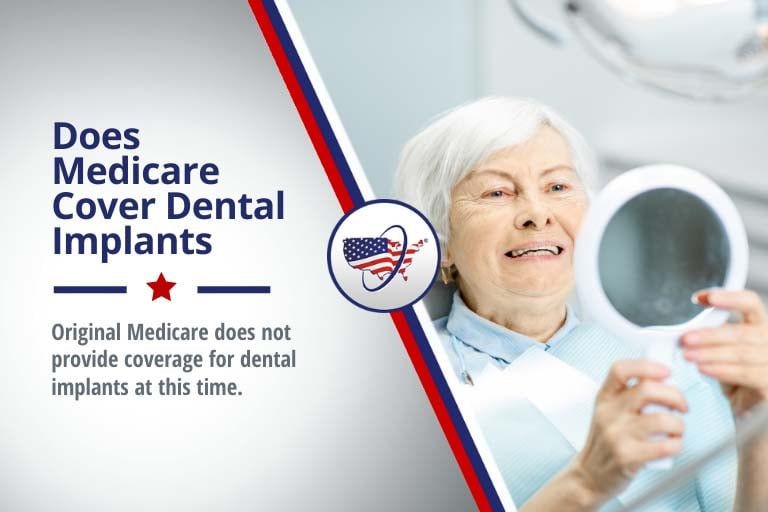Factors Influencing Coverage for Dental Implants

Will medical insurance cover dental implants – The coverage of dental implants by medical insurance can vary significantly depending on a range of factors. Understanding these factors is crucial for individuals considering implant procedures to determine their potential out-of-pocket expenses.
Insurance Plan Type
The type of dental insurance plan you have plays a crucial role in determining coverage for dental implants. Here’s a breakdown of how different plan types typically approach implant coverage:
- HMO (Health Maintenance Organization):HMOs typically offer limited coverage for dental implants. They often require you to use in-network dentists and may have strict pre-authorization requirements. They might only cover a portion of the implant cost or have a maximum coverage limit.
- PPO (Preferred Provider Organization):PPOs generally offer more flexibility in choosing dentists, including out-of-network providers. They may provide better coverage for implants compared to HMOs, but you’ll likely have higher out-of-pocket costs if you choose an out-of-network dentist.
Pre-existing Conditions and Medical History, Will medical insurance cover dental implants
Your medical history and pre-existing conditions can influence your insurance coverage for dental implants. For example, if you have a history of diabetes or gum disease, your insurance provider may be more hesitant to cover implants, as these conditions can increase the risk of complications.
Policy Limits and Deductibles
Insurance policies often have limits on the amount of coverage they provide for specific procedures, including dental implants. Additionally, you may have to meet a deductible before your insurance begins covering the cost. This means you’ll need to pay a certain amount out-of-pocket before your insurance kicks in.
- Policy Limits:These are the maximum amounts your insurance will cover for a particular procedure, such as dental implants. Once the limit is reached, you’ll be responsible for any remaining costs.
- Deductibles:This is the amount you must pay out-of-pocket before your insurance coverage begins. The deductible varies depending on your insurance plan.
Alternative Payment Options

Dental implants are a significant investment, and while insurance coverage can help, many individuals still face substantial out-of-pocket expenses. Fortunately, several alternative payment options can make this procedure more accessible. Understanding these options can empower you to make informed decisions about your dental care.
Dental Loans
Dental loans are specifically designed for financing dental procedures, offering competitive interest rates and flexible repayment terms. They can be obtained from various sources, including banks, credit unions, and online lenders.
- Advantages:Dental loans typically have lower interest rates compared to personal loans and credit cards. They also offer flexible repayment terms, allowing you to spread out the cost over several months or years.
- Disadvantages:Dental loans may require a credit check and could impact your credit score if not managed responsibly. You might also face origination fees or other charges.
Payment Plans
Many dental offices offer in-house payment plans, allowing you to pay for your dental implants in installments over a set period.
- Advantages:Payment plans are often interest-free or have lower interest rates compared to other financing options. They can be a convenient way to manage the cost of dental implants, especially if you have a good credit history.
- Disadvantages:Payment plans may have limitations on the total amount financed or the repayment period. They might also require a down payment or a minimum monthly payment.
Health Savings Accounts (HSAs) and Flexible Spending Accounts (FSAs)
HSAs and FSAs are tax-advantaged accounts that can be used for eligible medical expenses, including dental implants.
- Advantages:Funds deposited into HSAs and FSAs grow tax-free, and withdrawals for eligible expenses are tax-free. This can significantly reduce the overall cost of dental implants.
- Disadvantages:HSAs and FSAs are subject to contribution limits. You may need to plan ahead to accumulate enough funds to cover the full cost of dental implants.
Commonly Asked Questions: Will Medical Insurance Cover Dental Implants
What are the different types of dental implants?
Dental implants are typically made of titanium, a biocompatible material that integrates with the jawbone. The most common types include endosteal implants (placed directly into the jawbone), subperiosteal implants (placed on top of the jawbone), and zygomatic implants (used for patients with significant bone loss).
Do I need pre-authorization for dental implant surgery?
Yes, most insurance plans require pre-authorization for dental implant surgery. This involves submitting a request to your insurance provider for coverage approval before the procedure. The pre-authorization process typically involves providing medical records and a treatment plan.
What are the benefits of using a health savings account (HSA) for dental implant costs?
HSAs offer tax advantages for healthcare expenses, including dental procedures. Contributions to an HSA are tax-deductible, and withdrawals for qualified medical expenses, including dental implants, are tax-free. However, HSAs are only available to individuals with high-deductible health plans.